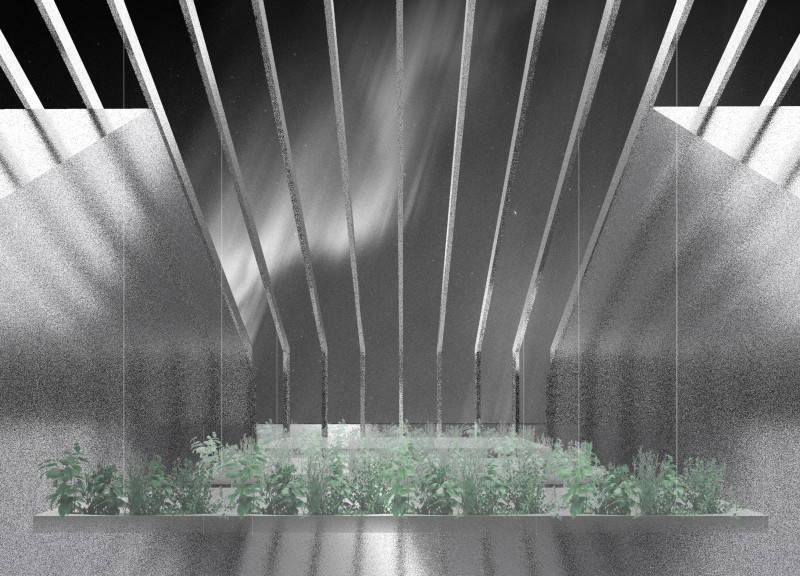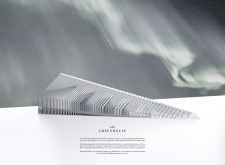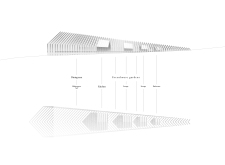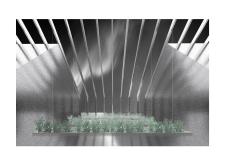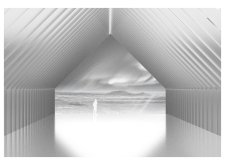5 key facts about this project
The primary function of "The Greenhouse" is to provide a unique dining experience that incorporates locally sourced ingredients grown within the structure itself. By situating gardens alongside the dining areas, the design encourages a farm-to-table approach where fresh produce is visibly integrated into the culinary process, fostering an educational interaction with sustainability practices.
The layout is organized into distinct zones: the dining area, multipurpose hall, kitchen, and support spaces. The dining area, characterized by transparent polycarbonate walls, maximizes natural light and offers unobstructed views of the gardens. The multipurpose hall adds flexibility for events and community gatherings, while the kitchen’s proximity to the growing areas enhances efficiency in food preparation.
The architectural design stands out due to its unique approach to materiality and form. The use of transparent polycarbonate sheets allows for significant light penetration and visual continuity with the surrounding environment. This choice not only offers aesthetic value but also contributes to thermal performance by maintaining a moderate internal climate. The steel framework provides necessary structural support, while reinforced concrete elements ensure durability against Iceland's challenging weather conditions.
Innovations in the design include natural ventilation strategies integrated into the structure, enhancing airflow within the dining spaces and reducing reliance on mechanical systems. The slatted facade allows for passive climate control, using architectural form to respond effectively to its environment.
The architectural project "The Greenhouse" provides a compelling example of how architecture can engage with sustainability, creating a seamless connection between food, environment, and community. For a deeper understanding of its design elements and principles, readers are encouraged to explore the architectural plans, sections, and designs that detail this innovative project.


